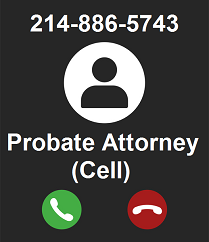Probate: 469.708.6050
Wills & Guardianship: 214.227.6400
13355 Noel Rd., Ste. 1100
Dallas, Texas 75240
Read the Will
Ceremonial Reading of the Will not Required. We have all seen the movies where all of the heirs of an estate are gathered in the lawyer's office. The lawyer then reads the contents of the decedent's will leading to a pleasant surprise for the most undeserving of heirs. As a result of the movies, we get a lot of calls from would-be heirs complaining that the executor has not had a reading of the will. In Texas there is no requirement to have a formal reading of the will. In fact, a Texas executor has 60 days to share the fact that the will has been admitted to probate. Furthermore, notice is only given to those persons who receive property under the terms of the will. By that time, any would-be contestants to the will would now have the burden of proof in trying to contest or overturn the admission of the will into probate.
So why read the will? Although there is no requirement for a ceremonial reading, we recommend that the named executor read the will and decide if he or she is able and willing to execute the terms of the will. Many would-be executors are too old, too busy, too far away, or just not interested in being the executor of an estate. The declining executor need only sign a form indicating that he or she declines to serve and the court will then consider the alternate successor named in the will.
What does an executor do? An executor's job is to execute the terms of the will. Deviating from the terms of the will can land the executor in hot water. Therefore the executor should read the entire will. If you have any questions regarding the terms of the will, you should ask a Dallas Probate attorney.
© 2016-2021 Duran Firm, PLLC
All rights reserved.













